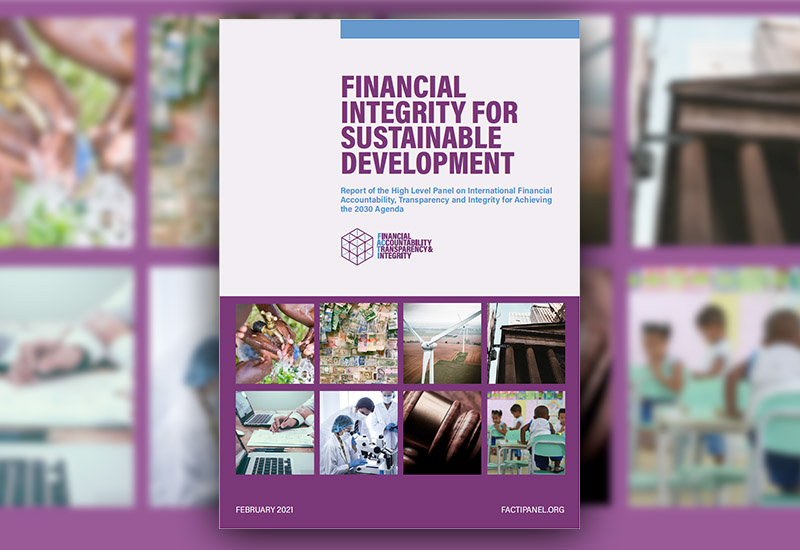Blog
Why cross-border social protection would be useful

In both countries, the economy currently seems to be in free fall. In Zimbabwe, a hunger crisis is looming as prices are rising fast. The background is that the government has discontinued the use of the US dollar, and the token money that has replaced the foreign currency has depreciated fast. Argentina similarly is experiencing a dramatic deterioration of the exchange rate of the peso with serious impacts on inflation. The IMF programme that was launched to support Argentina last year is apparently failing.
The historical background is different, but the symptoms are similar. It is striking, of course, that in both countries, policymakers have mismanaged the economy for decades. The big issue now is that the damage cannot easily be repaired. Average people’s lives are being destroyed, and it is not obvious what national policy-making can do to ease their plight.
Anger and dissatisfaction are widespread. Unless the citizens of both countries see some kind of promising new outlook, these national crises will spill over into neighbouring countries. Political unrest and mass migration matter very much.
Unfortunately, humanity lacks mechanisms of international support that might alleviate suffering in situations like this. The challenges to introducing cross-border social protection are huge. I will return to them later in this blog post. First, however, I must explain briefly (and, indeed, superficially) what went wrong with the first attempt to set up such mechanisms.
When the International Monetary Fund (IMF) was established at the Bretton Woods conference at the end of World War II, it was designed to be an instrument of international solidarity. Crisis lending in combination with an adjustment of exchange rates, which at the time were fixed, were supposed to kick start national economies in times of crisis. The idea was to keep unemployment in check and thus prevent the worst hardships. Yes, there would be some short-term pain as imports became more expensive, but people would experience recovery fast.
The system of fixed exchange rates collapsed in the 1970s, and the IMF morphed into an instrument that imposed market orthodox policies on countries that were struggling with debt problems. These debt problems were typically exacerbated by deteriorating exchange rates. As the currencies of indebted nations depreciated, their dollar-denominated debt burdens became ever heavier.
To some extent, IMF lending still helped economies to cope with economic crisis. Some big economies (including India and later Brazil) bounced back fast. In many others, however, poverty and deprivation lingered on for a long time. Making matters worse, many countries became stuck in over-indebtedness. Their economies’ recoveries were not strong enough to enable them to repay all debts, which now included IMF loans. By the turn of the millennium, multilateral debt relief had become inevitable.
What I have just spelled out here is, of course, a rather simplified and schematic assessment of what happened. Details matter, and case studies of different countries will always show some deviations from general patterns. On our platform, we discussed many of these issues last summer, and you’ll find relevant information in the briefing on our website.
It is noteworthy that thinking within the IMF has changed to some extent. In the past decade, its chief economists no longer focused exclusively on austerity, but appreciated the relevance of social-protection systems. They increasingly backed off from free-market ideology, accepting that governments have an important role to play, for instance in building and maintaining infrastructure. They warned that widening social disparities hurt the economy and appreciated prudent regulation.
As a result, IMF conditionalities are not as harsh as they used to be. Nonetheless, as Argentina’s current crisis shows, they cannot prevent hardships. Exchange-rate volatility in particular is beyond IMF control. The fast depreciation of the peso means that Argentina is in a downward spiral. The IMF also involved in Zimbabwe’s policymaking. It recently advised the government, though it did not grant the country a loan.
At this point, I don’t think it helps to try to figure out who exactly is to blame for the current problems in Argentina and Zimbabwe. No relevant players is entirely faultless, neither the governments concerned, nor their predecessors, nor the IMF, nor private financial-sector investors. It is far more important to ponder the following questions:
- What measures can lead out of the current crisis, preventing mass suffering and triggering a fast recovery?
- Who can implement such measures?
It is quite obvious that the current governments do not have a grip on the problems. It is equally clear, that any political party or coalition that might eventually replace them, would also be unable to lead their nations out of the malaise. The plain truth is that neither IMF nor any other international financial institutions, as they are currently designed, are up to the task either.
Things would be different if the international community had some kind of cross-border social-protection system which might buffer the worst hardships, and thus give governments some scope for introducing radical reforms. Such a system would also reduce the pain that disasters at the nation-state level causes in other countries.
There are several obvious reasons why we don’t have that kind of system. The most important one is that it would cost a lot of money. In rich nations, many voters already believe that official development assistance (ODA) is excessively expensive. Therefore, governments are reluctant to spend more. Governments of low-income countries would obviously be in an even more awkward position if they had to explain to their citizens why they are contributing any kind of support at all to a suffering middle-income country.
Other reasons that make this issue so difficult include:
- that there would be concerns of funds being abused and diverted,
- that new and complex bureaucracies would be needed and
- that the legitimacy of such a system would depend on a universal understanding of fairness social justice.
All of these issues are very hard to tackle. The recent surge of populist politics, which emphasises the national interest and disparages global cooperation, adds to the difficulties.
Admitting that a problem is difficult, however, does not make it go away. If humankind allows national crises to spin out of control, other nations will be affected too. The motto of the Sustainable Development Goals, which the entire UN have signed up, is to leave no one behind. It implies a notion of solidarity that transcends national borders. To the extent that we allow masses of people to be punished for the failure of successive governments, we are leaving them behind.














